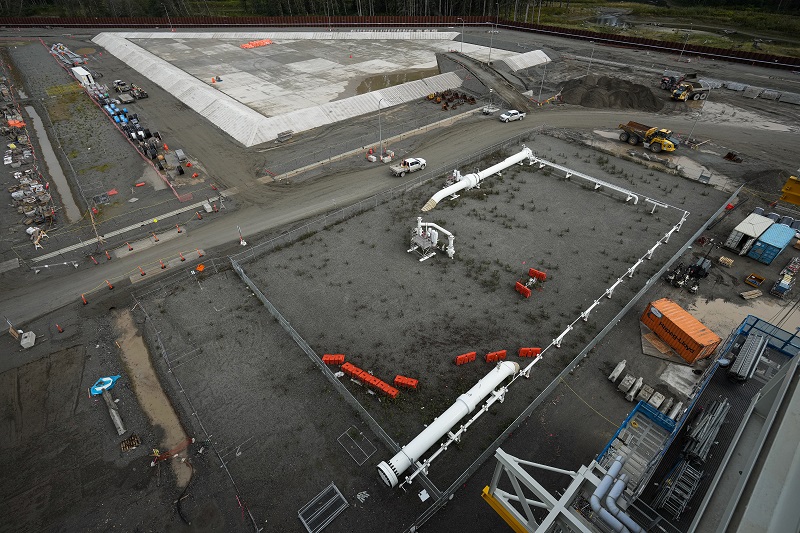Unexpected construction issues, rising labour costs increase pipeline cost to $14.5 billion

CALGARY – The estimated cost of the Coastal GasLink pipeline has increased by 29 per cent to $14.5 billion, as the company behind the project continues to be dogged by unexpected construction issues and rising labour costs.
Calgary-based TC Energy Corp. released the new price tag, up from an earlier estimate of $11.2 billion, for the project on Wednesday.
The $11.2-billion figure, announced by the company last July, was itself a significant increase from an earlier cost projection of $6.6 billion.
“We are disappointed with the increase in the Coastal GasLink Project costs,” TC Energy chief executive Francois Poirier said in a release.
“We continue to be laser-focused on safely completing this critical piece of energy infrastructure at the lowest possible cost.”
The Coastal GasLink project is a 670-km pipeline spanning northern British Columbia. It will carry natural gas across the province to the LNG Canada processing and export facility in Kitimat, B.C.
Construction of the pipeline is 83 per cent complete and TC Energy hopes to complete the project by the end of this year. However, the company warned Wednesday that if construction extends into well into 2024, it could add up to an additional $1.2 billion to the project’s cost.
TC Energy – which warned at its investor day in November that it was anticipating a material increase in the cost of the project – said it has run into a host of problems including a shortage of skilled labour; contractor underperformance and disputes; as well as other unexpected events like drought conditions and erosion and sediment control challenges.
While the company said it is pursuing potential recoveries from contractors to offset a portion of the rising costs, it will recognize an impairment to its equity investment in Coastal GasLink in its fourth-quarter 2022 financial results.
TC Energy said its overall 2023 capital expenditure outlook has been revised to approximately $11.5 to $12.0 billion, reflecting the deferral of certain project spending, expected cost-saving initiatives and incremental funding requirements associated with Coastal GasLink.
In an emailed statement, LNG Canada said it continues to monitor Coastal GasLink’s cost and schedule developments.
“While we cannot disclose specifics, a commercial agreement is in place that addresses risk allocation,” the statement said.
LNG Canada is a joint venture between Shell plc, Petronas, PetroChina, Mitsubishi and the Korea Gas Corporation. Its Kitimat LNG export facility is more than 70 per cent complete, and the project partners have said they want to deliver its first LNG shipment to global export markets by mid-decade.
The Coastal GasLink pipeline is not the only major energy infrastructure project in Canada to be plagued by cost overruns. Last February, the Crown corporation behind the Trans Mountain pipeline expansion project – which will increase oil transportation capacity from Alberta to the West Coast – announced the new cost of the project was an estimated $21.4 billion, up from an earlier estimate of $12.6 billion.
Trans Mountain Corp. blamed the surging cost projections on the COVID-19 pandemic and the effects of the November 2021 flooding in B.C., as well as project enhancements, increased security costs, route changes to avoid culturally and environmentally sensitive areas, and scheduling pressures related to permitting processes and construction challenges in difficult terrain.
Budget overruns at both pipelines have provided fodder for environmental groups, who believe companies should be investing in green energy instead of traditional fossil fuels.
Feature image: The terminus for the Coastal GasLink natural gas pipeline, bottom, is seen at the LNG Canada export terminal under construction in Kitimat, B.C., on Wednesday, September 28, 2022. THE CANADIAN PRESS/Darryl Dyck







